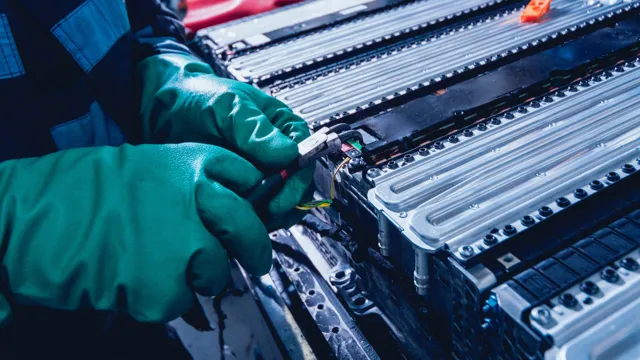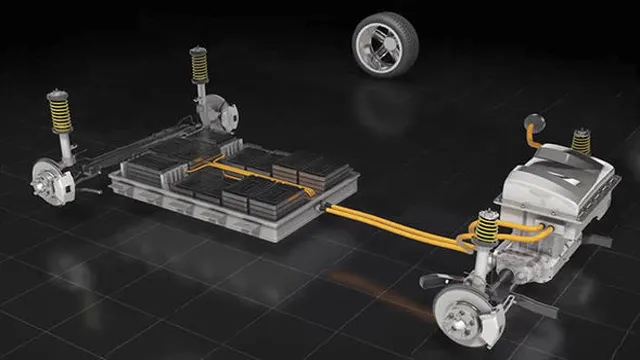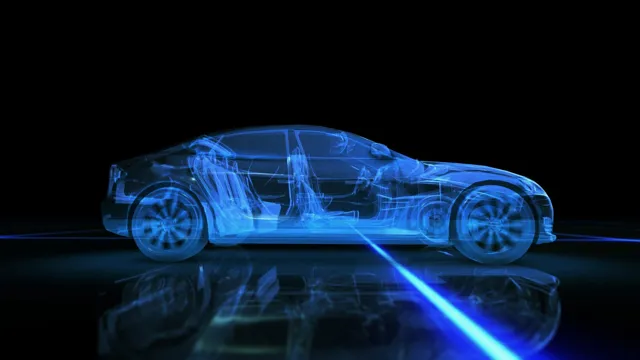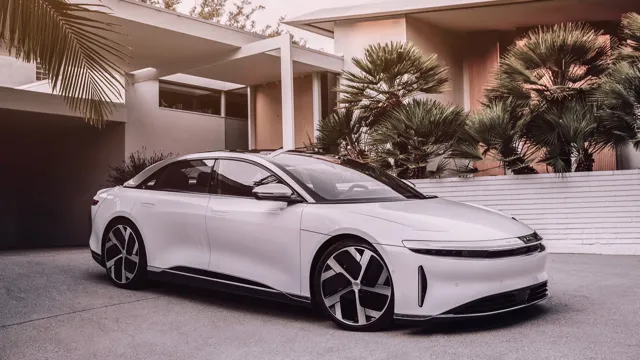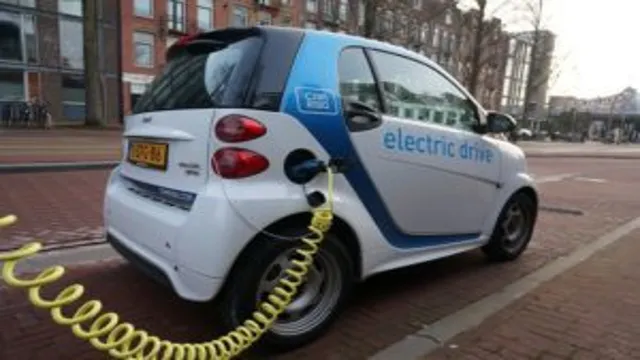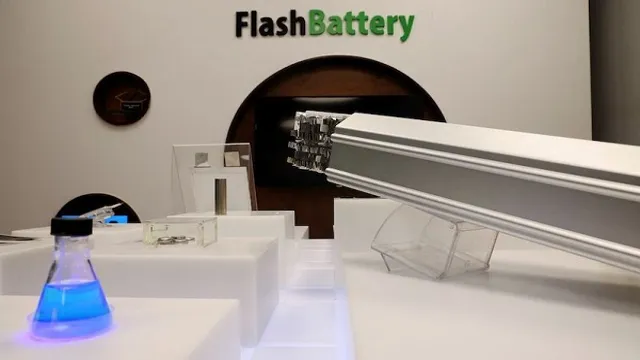Revolutionary Next-Gen Electric Car Battery Technology: A Glimpse into the Future
Electric cars are no longer a thing of the future. With each passing day, they are becoming increasingly popular, and automakers all over the world are vying to come up with the best electric cars in the market. Although electric cars have come a long way since the initial hand-built prototypes, they still face a number of challenges.
Battery technology, range anxiety, and charging infrastructure are just a few of the hurdles that need to be overcome before electric cars become the norm. But despite these challenges, electric cars have come a long way in recent years. And now, with cutting-edge technology, they are revolutionizing the world of transportation.
Electric cars are no longer just about saving the environment, they are also about performance, convenience, and luxury. In this blog, we will delve into how electric cars are revolutionizing the automotive industry. We will talk about the latest technological advancements that have transformed electric cars into viable alternatives to traditional gasoline-powered vehicles.
So, let’s get started and explore the exciting world of electric cars.
Current Battery Technology Disadvantages
Future electric car battery technology has the potential to significantly improve the driving range, charging time, and overall cost-effectiveness of electric vehicles. While current battery technology has come a long way in recent years, it still has several disadvantages. One of the biggest obstacles is that batteries are heavy and take up a lot of space, which can limit the amount of energy they can store.
Furthermore, they can take several hours to charge, making long-distance travel more challenging. Another issue is the cost, as batteries can be quite expensive to manufacture and replace. In the future, advancements in battery technology aim to address these concerns by developing batteries that are lighter, smaller, have faster charging times, and are more affordable.
The introduction of solid-state batteries and lithium-sulfur batteries could be significant breakthroughs in the industry, and many car manufacturers are investing heavily in research and development to bring these new technologies to market. With continued innovation, the future of electric car battery technology looks very promising.
Range Limitations
Range limitations are a painful reality of current battery technology. The amount of energy a battery can hold is finite, which makes range and longevity problematic. Car manufacturers are trying to improve battery technology, but advancements are slow.
When it comes to electric cars, the biggest drawback is their limited range. Most electric cars can travel around 100-200 miles on a single charge, while gas cars can travel 300-400 miles on a single tank of gas. This distance is inadequate for long trips and can cause anxiety for drivers who are conscious of running out of charge before arriving at their destination.
Additionally, charging an electric car can take up to 8 hours or more, which is an inconvenience for most people. Therefore, range limitations will remain a disadvantage of electric cars until battery technology improves significantly.

Charging Time
Charging time is a common issue for many electronics owners, and unfortunately, current battery technology has several disadvantages that make this problem difficult to solve. One major issue is that lithium-ion batteries, which are commonly used in many devices, have a limited lifespan and their capacity decreases over time, even if they are well-maintained. Another issue is that while lithium-ion batteries can provide high energy density and relatively good performance, they cannot be charged quickly without causing damage to the battery.
This means that even if you invest in a high-quality fast charger, you may still have to wait several hours for your device to charge fully. In short, while current battery technology has come a long way in recent years, there is still much work to be done in developing more efficient and longer-lasting battery solutions.
Battery Lifespan
Battery technology has come a long way in the past few decades, but there are still challenges to overcome when it comes to battery lifespan. One of the main disadvantages of current battery technology is that over time, batteries lose their ability to hold a charge. This means that after a certain number of charge cycles, even the highest-quality batteries will start to lose capacity.
This can be frustrating for users who rely on their devices, and it can also lead to increased electronic waste. Additionally, some types of batteries are more prone to issues such as overheating, which can pose a safety risk. However, there are efforts underway to improve battery technology and extend battery lifespan, such as developing new materials and exploring alternative battery chemistries.
Despite the challenges, batteries remain an essential component of modern technology and will continue to play a crucial role in powering our devices.
The Future of Electric Car Batteries
The future of electric car battery technology is evolving rapidly as automakers pursue new and innovative ways to reduce costs and increase performance. Lithium-ion batteries have been the standard for electric vehicles but there is a growing interest in solid-state batteries, which offer higher energy density and faster charging times. Additionally, there is a renewed focus on battery recycling and reuse, as well as developing options for second-life uses, which extend the usefulness of the batteries after their first life as a vehicle power source.
Moreover, companies are exploring new chemistries and materials such as sodium-ion, zinc-air, and graphene supercapacitors to help solve the challenge of range anxiety and reduce the environmental impact of battery production. Consumers can expect to see significant advancements in electric vehicle battery technology in the coming years, including increased energy efficiency, greater range, faster-charging times, and improved environmental sustainability. As the electric vehicle market continues to grow, so will the demand for reliable, efficient, and cost-effective batteries.
Solid-State Batteries
Solid-state batteries have become a hot topic in the world of electric cars, as they are believed to be the future of car batteries. These new batteries have a higher energy density than traditional lithium-ion batteries, meaning they can store more energy in a smaller space. They also have a longer lifespan, are safer to use, and can be charged faster than their older counterparts.
This groundbreaking technology will revolutionize the electric car industry by providing longer ranges and faster charging times, making electric cars the go-to choice for drivers. The benefits of solid-state batteries are massive, and it’s no surprise that researchers are working tirelessly to ensure they become widely available soon. With this innovative technology, the future of clean energy transportation looks brighter than ever.
Graphene-Based Batteries
Graphene-based batteries are being touted as the future of electric car batteries. These batteries have the potential to revolutionize the electric car industry by offering higher energy storage capacity, faster charging times, and longer lifetimes than traditional lithium-ion batteries. Graphene, an incredibly strong and lightweight material, has been shown to improve the performance of batteries by increasing their conductivity and reducing internal resistance.
As a result, graphene-based batteries are able to transfer electricity more efficiently and at higher rates than lithium-ion batteries. While these batteries are still in the testing and development phase, researchers are optimistic about their potential and believe they could be a game-changer in the electric car market. The future looks bright for graphene-based batteries, which could pave the way for a more sustainable and eco-friendly transportation system in the years to come.
Lithium-Sulfur Batteries
Lithium-sulfur batteries could be the next big thing in the world of electric car batteries. These batteries have the potential to enhance the power and performance of electric vehicles, making them more efficient and reliable. The reason why lithium-sulfur batteries are seen as a promising technology for the future is that they have twice the energy density of lithium-ion batteries, which are currently used in most electric cars.
This means that electric vehicles powered by lithium-sulfur batteries can have a longer driving range and can be charged faster. Additionally, these batteries are safer and more environmentally friendly than lithium-ion batteries, which have a risk of catching fire or exploding. In short, lithium-sulfur batteries offer a cost-effective and sustainable solution to power electric cars in the coming years.
Advantages of Future Battery Technology
Future electric car battery technology holds numerous advantages over traditional battery technology. One of the most significant benefits is the increased range that future batteries can offer. With advancements in battery chemistry, electric car batteries are becoming more powerful and efficient, allowing them to travel greater distances on a single charge.
This increase in driving range will make electric cars a more feasible option for long-distance travel, reducing the need for frequent charging stations and eliminating range anxiety. Additionally, new battery technology is being developed that is safer, longer-lasting, and more environmentally friendly than traditional batteries. This means that in the future, we may see a shift away from the use of toxic materials such as lead and cadmium in battery production, which could have significant positive impacts on the environment.
Overall, these advancements in future electric car battery technology bring us one step closer to a more sustainable and efficient transportation system.
Extended Range
Extended Range With future battery technology, there are several potential advantages that could revolutionize the electric vehicle industry. One of the most significant advantages is extended range, which would allow drivers to go further on a single charge. This would lead to increased practicality for electric vehicles and eliminate the need for frequent charging stops.
Improved battery technology could also result in reduced costs for automakers and consumers, making electric vehicles more accessible to the average person. In addition, the environmental benefits of electric vehicles would be amplified by extended range, as drivers could go longer distances without emitting harmful pollutants. All in all, the development of advanced battery technology presents exciting opportunities for the future of electric vehicles and sustainable transportation.
Rapid Charging
Rapid Charging The future of battery technology is looking brighter than ever before, thanks to advances in rapid charging. One of the biggest advantages of this technology is that it can significantly reduce the time it takes to power up your devices, from smartphones to electric vehicles. Imagine being able to charge your phone up to 50% in just a few minutes, without having to wait for hours for it to fully charge.
This would make life so much easier, especially for those who are always on the go. With rapid charging, you can also hit the road with peace of mind, knowing that if you need a quick top-up, it won’t take hours out of your day. The key to the success of this technology is the development of battery materials that can handle the higher levels of stress associated with rapid charging.
Materials like silicon anodes and lithium-sulfur cathodes are showing a lot of promise in this area, and researchers are continuing to explore ways to improve upon them. As these materials become more widely available, we can expect to see even more advancements in rapid charging and battery technology as a whole.
Conclusion
In conclusion, the future of electric car battery technology is brighter than ever. With groundbreaking advancements in materials science, engineering, and manufacturing techniques, we can expect to see electric vehicles with longer range, faster charging times, and lower costs in the coming years. From solid-state batteries to lithium-sulfur chemistries, the possibilities are endless.
So get ready to say goodbye to range anxiety and hello to a greener, more efficient future of transportation!”
FAQs
What is future electric car battery technology?
Future electric car battery technology refers to the development and advancement of battery technology specifically designed for electric vehicles.
How does future electric car battery technology differ from current battery technology?
Future electric car battery technology utilizes new materials and designs that increase energy density, efficiency, and lifespan compared to current battery technology.
How will future electric car battery technology impact the automotive industry?
Future electric car battery technology will allow for longer range, faster charging, and lighter weight electric vehicles, making them more accessible and practical for the general public.
What are some challenges facing the development of future electric car battery technology?
Challenges facing the development of future electric car battery technology include cost, safety concerns, and environmental impact of battery production and disposal.
